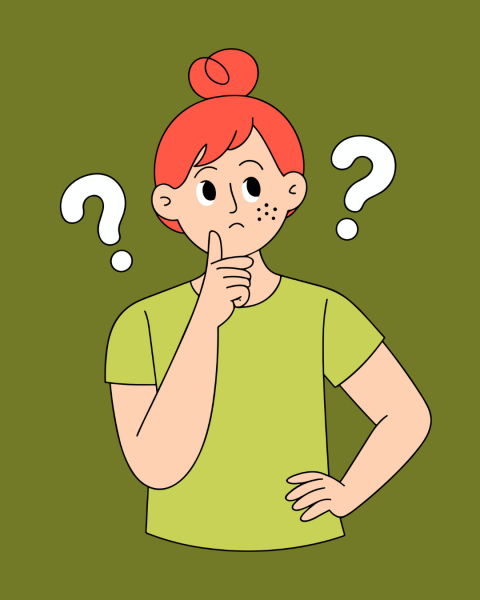
Recently, I watched a video by the Harvard Business Review titled “You Need to Be Bored. Here’s Why.” The professor, Arthur C. Brooks explains why boredom unlocks creativity, activates a powerful brain network and might even protect you from depression.
Not only did I learn that we should be bored more often, but that we need to not have our brains as occupied in order to use our default mode network in our brains. The default mode network is where brain regions are most active when the mind is at wakeful rest involving self-reflection, daydreaming, memory and imagining the future.
These functions lead us to thrive when used properly. In self-reflection, we learn to take accountability and grow as humans; when we think deeply we find deeper meanings within ourselves, our goals and our wants.
“Boredom is “idle minds and idle hands,” said Evan Leavitt, GCSU archivist and assistant professor of Library Science. “It’s a lack of engagement with something. You are not getting that stimulation with something and that’s how you’re bored. Your brain isn’t on fire and there is no interest there.”
Something that limits this default mode network is screentime. Yes, we are addicted to our phones, but I am not promoting no phones at all, just more time to experience our boredom and not always use the phone as a distraction from that.
“I believe that phones are quick to turn to,” said Holly Croft, GCSU associate director for Special Collections. “When I say ‘brain break’, I check social media and then go back to work. It’s not a natural thought process. We’ve lived through this change. We know this is happening, but we move along with it. I don’t hang out with myself as much as I used to because I have my phone to keep me occupied. There is a place and a need to allow boredom.”
If you learn to be bored, you may end up happier. Some ways to use boredom in times where we use distractions can be to eat without devices, stop using our phones right before bed and take a periodic cleanse from being on ultra-device mode.
Croft highlighted the struggle to break this habit, especially when a phone is linked to a professional role.
“In my previous job, I used to be on my phone all the time to keep up with the news. Now working here, it is uncommon to be on my phone but it is less stressful to also put it down. The phone was part of my work, and the phone was on 24 hours. Not having the phone
was also stressful because if you miss something important that is problematic, even though I am semi de-programmed from it,” said Croft.
I believe this distraction is for us to minimize FOMO (Fear Of Missing Out), and for us not to feel so alone. Being present in the moment and being happy with just ourselves is key.
The idea of happiness as a shared resource underscores the importance of human connection over digital connection. While our phones keep us occupied, they often keep us isolated.
True joy is found in being present with others, whether through deep conversation, shared experiences or simply enjoying each other’s company without the distraction of a screen. This social connection is a powerful antidote to the loneliness that many people use their phones to avoid.
“Happiness means to me being happy when I do something I like,” said Jordyn Street, GCSU galleries and archives assistant. “I’m most happy when I am hanging out with friends, when we gossip, and just spending time together.”
Ultimately the message is simple,give yourself permission to be bored. By stepping away from the constant noise of notifications and endless scrolling, you create the necessary space for your brain to engage in meaningful thought.
Instead of completely eliminating technology, the goal is to create a healthier relationship with it. This allows for moments of quiet, reflection, and genuine connection with yourself and with the people who matter most.
By doing this, you might discover that the key to a happier, more creative, and less stressful life was always there in the stillness we’ve been trying to avoid.

